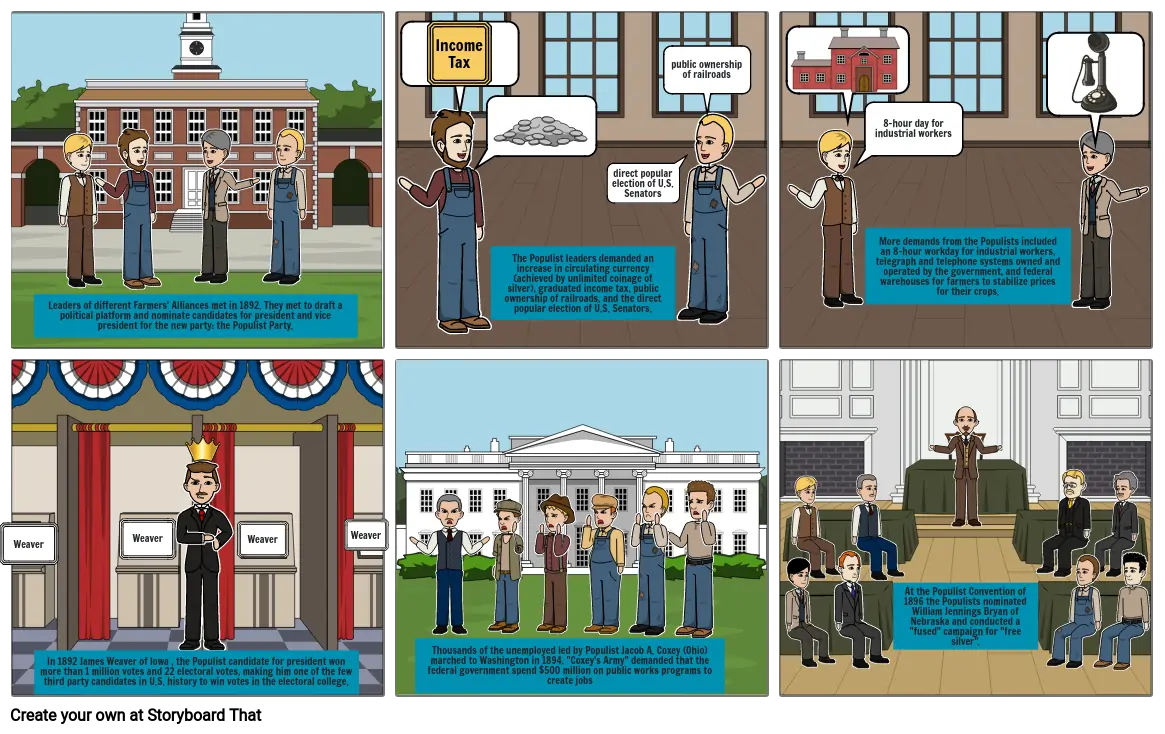The Populist Party

Storyboard Text
- Leaders of different Farmers' Alliances met in 1892. They met to draft a political platform and nominate candidates for president and vice president for the new party: the Populist Party.
-
- Income Tax
-
- The Populist leaders demanded an increase in circulating currency (achieved by unlimited coinage of silver), graduated income tax, public ownership of railroads, and the direct popular election of U.S. Senators.
- direct popular election of U.S. Senators
- public ownership of railroads
-
- 8-hour day for industrial workers
- More demands from the Populists included an 8-hour workday for industrial workers, telegraph and telephone systems owned and operated by the government, and federal warehouses for farmers to stabilize prices for their crops.
-
- Weaver
- In 1892 James Weaver of Iowa , the Populist candidate for president won more than 1 million votes and 22 electoral votes, making him one of the few third party candidates in U.S. history to win votes in the electoral college.
- Weaver
- Weaver
- Weaver
- Thousands of the unemployed led by Populist Jacob A. Coxey (Ohio) marched to Washington in 1894. "Coxey's Army" demanded that the federal government spend $500 million on public works programs to create jobs
- At the Populist Convention of 1896 the Populists nominated William Jennings Bryan of Nebraska and conducted a "fused" campaign for "free silver".
Over 30 Million Storyboards Created

